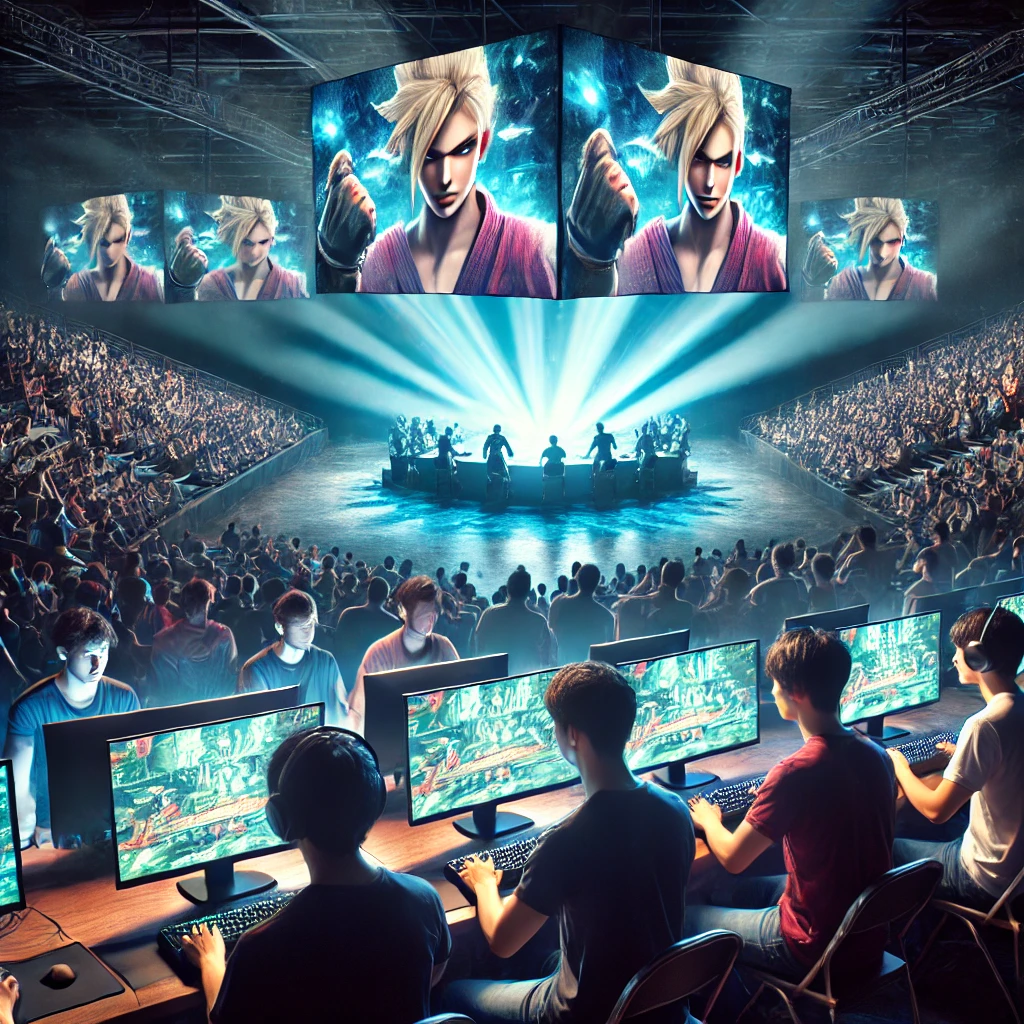Last year was a monster year for fighting games and the Fighting Game Community (FGC) in general. 2024 brought unprecedented growth, new games, and a surge of excitement that had even the most casual players taking notice. It was a time of celebration for those of us who love the genre. From innovative entries to crossover announcements that felt like dreams come true—Mai Shiranui and Terry Bogard in Street Fighter 6, and Clive Rosfield entering Tekken 8—the landscape has never looked brighter. Yet, amid the glory, there are growing concerns that deserve attention. Did we, as players and a community, get spoiled? And in being spoiled, have we become our own worst enemy?
Let’s take a step back to understand how we got here.
The Golden Age of Options
During the pandemic, fighting games were dropping like candy. Developers seemed eager to capitalize on the downtime and captive audience. Multiversus and DNF Duel are two prime examples of games that burst onto the scene with high hopes and strong launches. These games weren’t just good; they were crafted with care.
DNF Duel, in particular, stood out. It was visually striking, mechanically intriguing, and accessible to newcomers while offering a depth that competitive players could appreciate. Yet, despite its strong start, it faltered. The complaints poured in almost immediately. Players found fault with mechanics that made the game unique, arguing they were “unbalanced” or “unfair.” What’s ironic is that much of the FGC claims to celebrate diversity in playstyles and mechanics—but only until those mechanics challenge their comfort zones.
This isn’t new. Look back at Street Fighter V’s early days. Its simplified inputs and reliance on the V-System were lambasted as “dumbing down” the series. Fast-forward a few years, and it’s now regarded as one of the most beloved entries in the franchise. The cycle is exhausting, and it leaves casualties in its wake. Developers take risks to innovate, only to be met with an outcry that often overshadows their success. Not every game gets the chance to “find its legs” like Street Fighter V did.
A Culture of Complaints
This brings me to a hard truth: the FGC has a problem with entitlement. It’s uncomfortable to admit, but how often do we see our peers tear apart new games before they’ve even had a chance to settle into the meta? Instead of exploring what makes a game unique, some players seem more interested in pointing out what it’s not.
Take DNF Duel. This was a game begging to be explored. It’s flashy, with insane combos and mechanics that dared players to think outside the box. Yet, the discourse around it quickly turned toxic. Rather than celebrating its uniqueness, the conversation focused on what players thought it lacked: balance, polish, or “serious” competitive potential. The result? A game that could have been a staple was left to wither.
What We’re Risking
Looking ahead, games like 2xKO and the new Virtua Fighter hold immense promise. 2xKO especially seems poised to offer something fresh, with early previews suggesting mechanics that could redefine how we think about competitive play. But I can’t help but feel a sense of dread. Will we allow these games to thrive, or will they become the next victims of a hypercritical community?
The stakes are higher than they’ve ever been. The FGC’s recent growth means we’re under a brighter spotlight. Developers are paying attention, pouring resources into our beloved genre in ways we couldn’t have dreamed of a decade ago. But if we continue to tear down games before they’ve had a chance to prove themselves, how long will that attention last? How many developers will decide it’s not worth the effort?
Reflecting on Our Role
This is where I ask you, the reader, to pause and reflect. Have you been part of the problem? Have you dismissed a game without giving it a fair shot, or joined the chorus of complaints before fully understanding what it had to offer? It’s easy to fall into the trap of negativity, especially when others around us are doing the same. But what if, instead of focusing on what we don’t like, we leaned into what makes a game unique? What if we gave developers the time and space to refine their vision, rather than demanding instant perfection?
Seeing the Other Side
Imagine what it’s like for the developers. They spend years crafting a game, pouring their creativity and passion into something they hope will resonate with players. Then, within weeks of release, the narrative shifts from celebration to criticism. The hype dies, the player base dwindles, and the game’s potential fades. How many of us have stopped to consider what that feels like?
And it’s not just the developers who suffer. The community loses too. We miss out on games that could have grown into something incredible if given the chance. We lose the variety that makes fighting games so special. And, ultimately, we risk stagnation. If developers stop taking risks, we’re left with safe, formulaic games that offer little in the way of innovation.
A Call to Action
As we move into 2025, let’s commit to being better. Let’s celebrate the diversity of fighting games and the creativity of the developers who make them. Let’s give new titles the time and space to grow. And let’s hold each other accountable for fostering a community that’s constructive rather than toxic.
The FGC has always been about passion. Let’s make sure that passion lifts us up rather than tears us down. The future of our genre depends on it.

